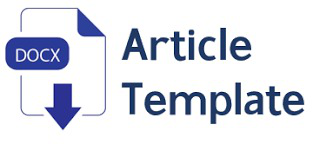Fikih NKRI: Landasan Berkonstitusi Bagi Umat di Indonesia
DOI:
https://doi.org/10.14421/sh.v4i1.1969Abstract
Muslim constitute the overwhelming majority of Indonesia’s population. The Islamic law in Indonesia has evolved from time to time in line with the demands of the changing history. Recently, and during the era of reformasi –it is commonly known sothe Islamic law has been progressively positivised. By this we mean the dynamics within which the Islamic law has the ability to respond to the new situation that requires the re-thinking of someof its dictums. The role of the government has equally been good; it is completely supportive of this process. This shift in direction taken by Islamic law is due to the fact that the colonial law in the country has become rotten. It is no longer able to deal with the ever-changing situations of this Muslim-majority country. This paper discusses this historic turn, and embarks on the debate concerning the advantages of the Islamic law for a Muslim country like Indonesia.
Several Islamic countries have attempted to write constitutions which are basedon the principles of the fikih (syari’ah) and, at the same time, they have borrowed procedural forms from Western constitutionalism. However, combining two different systems in a constitution is not an easy task. It is possible that there are some compromising and even conflicting views and values. This leads to the first question addressed in the thesis: Is fikih compatible with the principles and procedural form of constitutionalism?
References
Abdurrahman Wahid (ed.), Ilusi Negara Islam: Ekspansi Gerakan Islam Transnasional di Indonesia, Jakarta: the Wahid Institute, 2009.
Andi Muawiyah Ramly dkk, Demi Ayat Tuhan, Upaya KPPSI Menegakkan Syariat Islam, Jakarta: OPSI, 2009.
As’ad Said Ali, Negara Pancasila: Jalan Kemaslahatan Berbangsa, Jakarta: LP3ES, 2009.
Farag Fouda, Kebenaran yang Hilang, Jakarta: Paramadina, 2008.
Haedar Nashir, Gerakan Islam Syari’at Reproduksi Salafiyah Ideologis di
Indonesia, Jakarta: PSAP, 2007.
Hamid Algar, Wahhabisme: Sebuah Tinjauan Kritis, Jakarta: Paramadina,
M. Imdadun Rahmat, Arus Baru Islam Radikal;Transmisi Revivalisme Islam
Timur Tengah ke Indonesia, Jakarta: Erlangga, 2005.
M. Quraish Shihab, Wawasan Al-Qur’an: Tafsir Maudhu’i atas Pelbagai
Persoalan Umat, Bandung: Mizan, 1997.
Muhyar Fanani, Fiqh Madani: Konstruksi Hukum Islam di Dunia Modern,
Yogyakarta: LKiS, 2010.
Nourouzzaman Shiddiqi, Fiqh Indonesia, Penggagas dan Gagasannya, Yogyakarta: Pustaka Pelajar, 1997.
Nur Khalik Ridwan, Doktrin Wahhabi dan Benih-benih Radikalisme Islam, Yogyakarta: Tanah Air, 2009.
Nur Khalik Ridwan, Membedah Ideologi Kekerasan Wahhabi, Yogyakarta: Tanah Air, 2009.
Nur Khalik Ridwan, Perselingkuhan Wahhabi dalam Agama, Bisnis, dan Kekuasaan, Yogyakarta: Tanah Air, 2009.
Pradana Boy ZTF, Fikih Jalan Tengah: Dialektika Hukum Islam dan Masalah- masalah Masyarakat Modern, Jakarta: Hamdalah, 2008.
Sofiyullah MZ dkk., (ed.), KH.A. Wahid Hasyim: Sejarah, Pemikiran, dan Baktinya bagi Agama dan Bangsa, Jombang: Pondok Pesantren Tebuireng, 2011.








